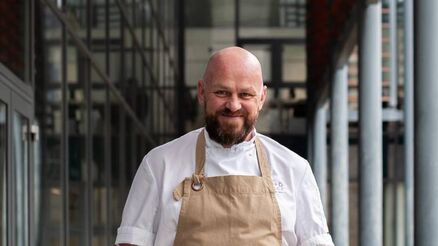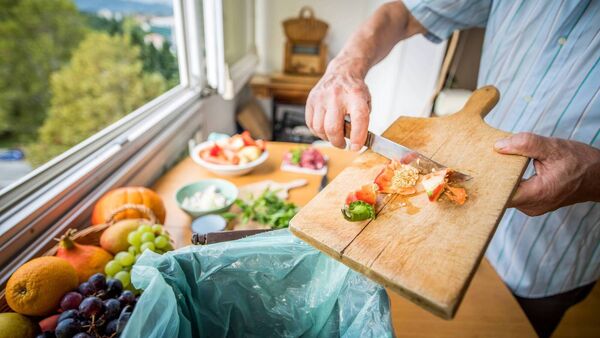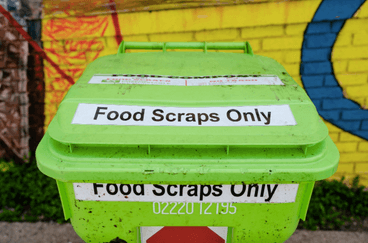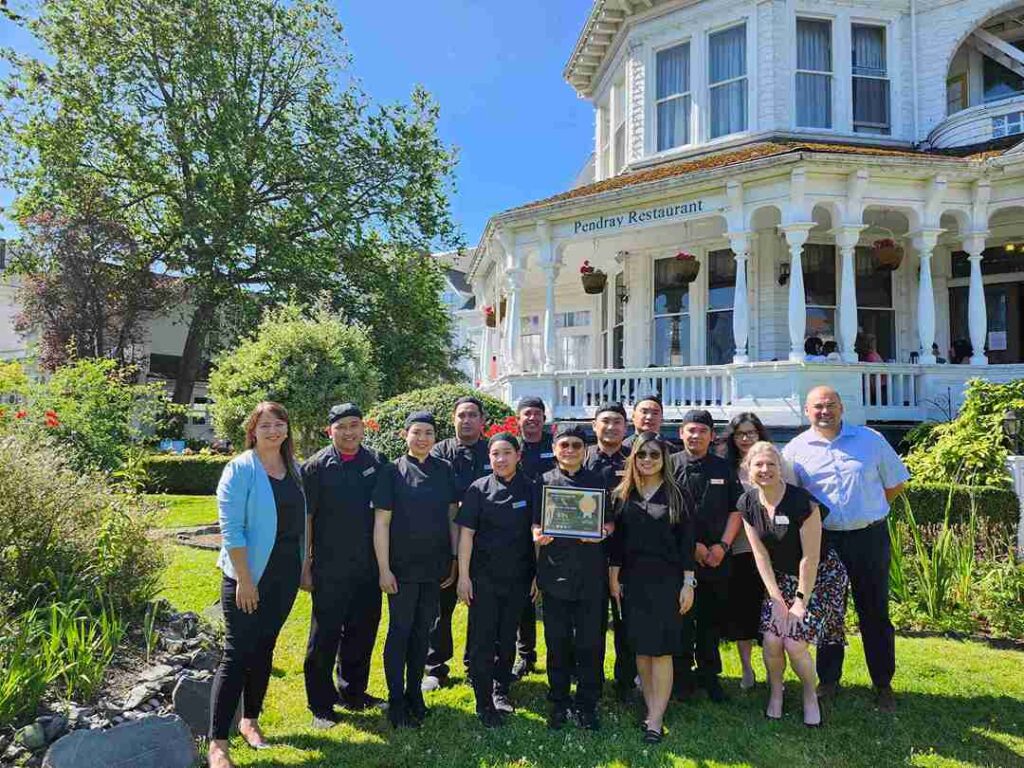From portion sizes to food waste pilots in Clonakilty, here are the progressive players tackling food waste in Ireland, writes Joe McNamee.
When it comes to climate change and its profound environmental impacts, it is no accident that so much blame, and the according of the onus of responsibility for effecting any necessary change, is repeatedly directed towards the average citizen, even though they are not the primary culprits.
It is giant global commercial interests that are the real culprits, including the industrial and manufacturing sectors, agri-biz, the transport sector and the fossil fuel industries.
When it comes to food waste, however, the picture is more nuanced.
Globally, 1.3bn tonnes, over one third of all food produced each year, is wasted, carrying a global carbon footprint of 3.3 billion tonnes of GHG.
However, in an extended chain that stretches from primary producers, through to processors and on to retailers, also including transportation, domestic households are responsible for roughly 40% of that mind-boggling 1.3bn tonnes, primarily in the wealthiest countries in the world.
The commodities with the highest level of waste globally across all sectors, commercial and domestic, are fruit and veg (45%, equivalent to 3.7trillion apples); roots and tubers (45%; equivalent to 1bn bags of potatoes); fish and seafood (35%, equivalent to 3bn Atlantic salmon); and meat (2%, equivalent to 75m cows).
In Ireland, the most common domestic waste, according to NGO Voice Ireland, breaks down as follows: Leftovers (43%); bread (41%); fruit (39%); vegetables (38%).
These figures would have especially appalled previous generations when the concept of food waste was almost unheard of and, born of thriftiness and necessity, our forebears lived truly sustainable lives when it came to food consumption — beginning with judicious purchasing, and ensuring every scrap was utilised in cooking and consumption.
In 21st century Ireland, we are now so utterly disconnected from our food systems and food consumption, that we waste close to 1m tonnes per annum, enough to fill Croke Park to the brim over 2.5 times.
If we want to make essential change, the hospitality sector is a good place to begin looking for advice and guidance.
After all, they have been dealing with it for a long time in a sector where it is estimated that 17% of a diner’s meal on average is left over and 55% of leftovers are edible.
The recent rises in running costs for the hospitality sector means every cost-saving angle is now being identified and forensically analysed, with strategies being implemented across the board.
From the smallest independent restaurants and cafés to the mainstream behemoths.
The PLEDGE
Daniel Taylor is executive sous chef of Dublin’s Shelbourne Hotel, now part of the global Marriot group, which has implemented a new initiative called ‘The PLEDGE on Food Waste’.
“It begins with management committing to a food waste reduction policy,” says Taylor, “and then bringing employees, associates, and customers on board, so everyone is aware, then it’s on to suppliers.”
After that, training and implementation begins, with scales and special bins installed around the building so all food waste is weighed, photographed and recorded as part of an ongoing auditing process, that gradually builds up a very detailed picture of where food is being wasted, whether in preparation, cooking, or as leftovers. This detailed knowledge is vital in implementing counter-strategies.
“We focus on training [employees],” says Taylor, “we teach them, for example, to focus on portioning proteins [meat, fish etc] precooked on scales. Another really good example is our zero waste dish, a sweet potato and onion soup incorporated into the bar menu, using the entire sweet potato and the entire onion, using a recipe created in house by a sous chef, and we share the story on the menu with the customer — it sells really well.
“In the canteen we have a suggestion box for any associate to come up with ideas. For example, a banqueting staff member reported a daily return of cooked carrots so we reduced the amount of carrots going out by 50% for banqueting and big dinners, with
immediate impact — she will be rewarded with a voucher, so it is incentivised.
“We do weekly briefings between front of house and chefs and discuss any unpopular items and dishes on the menu that don’t sell as well. It might be an element, such as a garnish that always comes back, the portion size could be too big and it is observed, and we talk about that and make changes where needed. We deal with the buffet waste by putting less out initially and then replenishing more frequently.
“Apart from reducing waste, it is increasing the quality of presented food. Every Thursday, in the staff canteens, we do a no-bin day which means staff really think about what they put on their plate. Between March 2023 and March 2024, we recorded a 21% decrease in food waste.”

WASTED
Chef Conor Spacey, author of Wasted (Blasta Books) a fantastic little primer on creative waste-free cooking, has a long track record when it comes to minimising or entirely eliminating food waste.
“Wasted was for everybody, not just an industry book, though I know a lot of chefs who use it, which is brilliant,” says Spacey, “but the three most wasted items are produce [fruit/veg], dairy and bread so, for me, the book was predominantly for domestic use.
“The biggest problem at home is how we buy and store our food. We buy with our eyes and without a plan. We should be asking ourselves questions. Am I working at home this week? Am I getting a Saturday takeaway?
“Planning around our lifestyles and knowing when we’re even actually going to be eating at home. We go shopping and then come home and throw out older food from the fridge to make room for the new stuff which is a really bad habit.
“We put all the produce into the bottom drawer of the fridge, fruit and veg, thinking that’s where it goes but a lot of fruit and veg is better at room temperature.
“Certain fruits release gases that accelerate decomposition of other fruits alongside so need to be stored separately. The fridge actually quickens the ripening process, so only put produce in the fridge when you slice it open.
“We have produce in the fridge in plastic bags wondering why it is getting slimy three or four days later. Storing properly saves money and is good for the environment.”
There are other innovative initiatives with inspirational potential for both commercial and domestic sectors.
My Goodness Food, in Cork, pioneered the Cork Urban Soil Project, a multi-award winning enterprise which created an entirely closed circular food production and consumption system, putting food waste — their own and from other stallholders at the farmers’ markets at which they trade — into a large anaerobic digester to yield the compost in which they grow new produce for use in their products and meals.
MyGug is a device produced in West Cork, another form of anaerobic digester which converts food waste into bio-gases suitable for gas cooking.
COMMUNITY
However, a new food waste project in Clonakilty adds what may well be the most essential ingredient of all to the process, the power of ‘community’.
Ever a progressive town — Ireland’s first Fair Trade town, the first Autism-friendly town — Clonakilty is designated by Voice Ireland as the first place in Ireland to roll out a food waste pilot project that involves the entire community, commercial, public and private.
Chocalatier Allison Roberts, of Exploding Tree Chocolate, who produces bean-to-bar chocolate in her tiny Clonakilty factory, and is also a committed food activist of long standing, has been seconded to work part-time on the project as the Community Liaison Officer, with the aim of rolling out a pilot project that will serve as a road map for other communities attempting similar in years to come.
“The first part was talking to members of the community, we got input from 250 businesses, producers, householders, community groups, retail, hospitality, and some farming. Then we began pilot initiatives; we have gone into three schools to develop projects to run next year. We are developing projects for all the hotels, businesses, and other community groups and festivals. The idea is that it is farm-to-fork, community wide.”
There is no reinvention of the wheel in many of these pilot initiatives but the Clon project stands out on its own with the focus on community.
“In the past, it’s all been about household or business waste, case by case, but the idea is, working throughout the community, the different sectors will be encouraged by activity in the other sectors, and that generates a sense of community participation and keeps momentum going. Regular communication is vital. We are constantly spreading the word and that keeps momentum going.
“We run events alongside all the festivals. For example, the recent Bike Festival had a guest chef doing a curry recycle, and everyone brought along Tupperware to take home leftovers. We have connected with older generations to find out about past traditions and their methods for avoiding food waste, for preserving and saving, and injected these ideas back into the community.
“In schools, the kids identify waste streams and we will help them to develop plans and implement change next year. There has been a big effort to identify commercial food waste streams and then redirect it to something like meals on wheels, who tell us they need more fresh produce. So we go around to retailers or producers telling them of this need. A collective of home cooks batch cook together, to maybe use a glut of produce or simply to cook collectively and reduce waste while producing healthier, more nutritious meals and also benefiting from the social side, and skills exchange.
“This summer we are running a campaign called ‘Stop the Sachet’, to eliminate all those plastic sachets of ketchup and vinegar and have buy-in from the town, businesses are ready to do that but we’ll have to work on that through the summer.
“When it comes to food waste, or any environmental initiative, the cultural shift is the hardest and biggest part — that’s why we need to be working as a community on this to make it stick.”
Source: https://www.irishexaminer.com/food/arid-41402227.html







